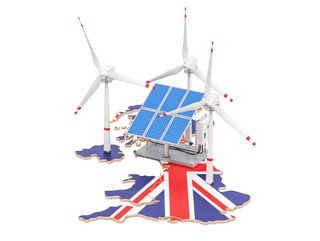UK launches Future System Operator to oversee energy system

The UK has launched the Future System Operator (FSO) to oversee its energy system and transition to net zero emissions.
The FSO, to be launched once legislation is passed and timelines have been discussed with key parties, will look at the UK's energy system as a whole, integrating existing networks with emerging technologies such as hydrogen.
The public body will be founded on the existing capabilities of the Electricity System Operator (ESO), and, where appropriate, National Grid Gas (NGG).
It will work with energy suppliers and networks to balance the UK’s electricity systems and ensure continued energy resilience and security of supply for households and businesses, and provide strategic oversight of the UK gas system by taking on longer-term planning in respect of gas, but not real-time operation, which will remain with NGG.
With high global wholesale gas prices and renewed pressure on energy networks following Russia’s illegal invasion of Ukraine, consumers are facing increased costs and there is an urgent need to safeguard and boost domestically produced energy. Today’s announcement comes ahead of the Energy Security Strategy which is due to be published tomorrow.
Energy Minister Greg Hands said: "Russia's appalling aggression in Ukraine amid escalating global gas prices has shown the vital importance of strategic change to the UK energy system. We need to boost our energy resilience, reduce our dependence on expensive imports and slash emissions. The FSO will do just that."
The Government, Ofgem, National Grid and the ESO have agreed a joint statement published alongside this announcement, which sets out their shared vision for the FSO.
Jonathan Brearley, chief executive of Ofgem, said a fully independent system operator will help to transform the UK's energy system and cut customers’ energy bills - at a time when businesses and consumers are wrestling with record prices following the increase in the price cap this month.
"Critically, the FSO will ensure that we will build a smart, efficient and flexible system that will mean that Britain moves to a secure low carbon and low-cost system," he said. "We look forward to working with National Grid, Government and the wider industry to implement this important change in the way the energy system is managed."
Fintan Slye, Executive Director, Electricity System Operator, welcomed today’s announcement that the ESO will be at the heart of the system operator of the future.
"The ESO will continue working closely with all parties involved in the coming weeks and months to enable a smooth and successful transition," he said.
The move aims to further build the resilience that energy providers and billpayers need. This will deliver greater energy security whilst ensuring the clean energy produced by the UK’s burgeoning renewables sector gets to the homes and businesses which need it across the country.
The FSO will take a significant role in shaping the energy system and facilitating competition, overseeing new projects and integrating them with existing energy supplies and have a duty to provide independent advice and technical input to the government and industry regulator, Ofgem, to inform key strategic policy decisions.
The consultation responses, published today, also give Ofgem a new strategic function overseeing energy companies’ governance codes. This decision is expected to result in a long-term net benefit for industry and consumers, by ensuring that the detailed technical and commercial rules which guide energy providers keep pace with our Net Zero ambitions and deliver for UK consumers.






